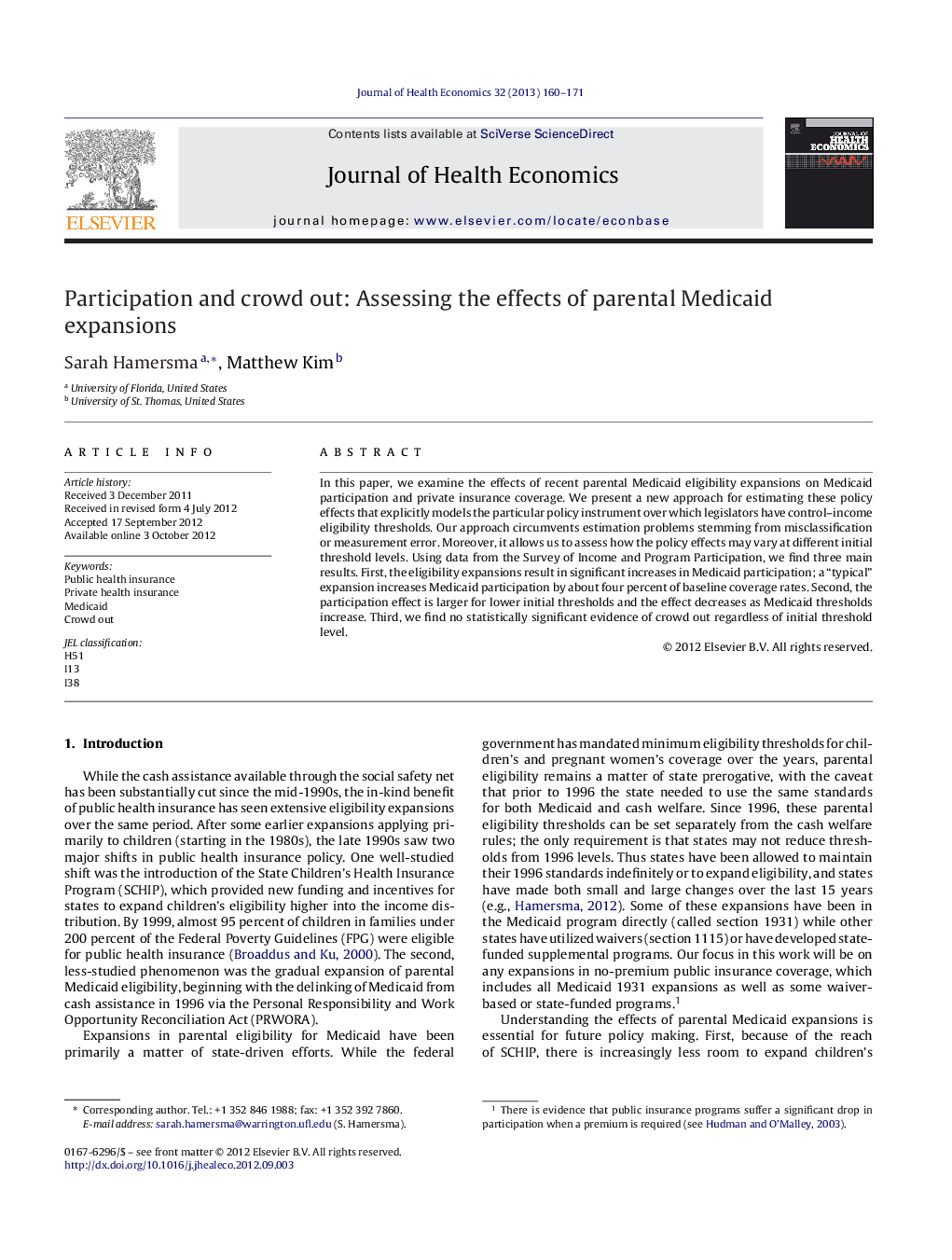| Article ID | Journal | Published Year | Pages | File Type |
|---|---|---|---|---|
| 961456 | Journal of Health Economics | 2013 | 12 Pages |
In this paper, we examine the effects of recent parental Medicaid eligibility expansions on Medicaid participation and private insurance coverage. We present a new approach for estimating these policy effects that explicitly models the particular policy instrument over which legislators have control–income eligibility thresholds. Our approach circumvents estimation problems stemming from misclassification or measurement error. Moreover, it allows us to assess how the policy effects may vary at different initial threshold levels. Using data from the Survey of Income and Program Participation, we find three main results. First, the eligibility expansions result in significant increases in Medicaid participation; a “typical” expansion increases Medicaid participation by about four percent of baseline coverage rates. Second, the participation effect is larger for lower initial thresholds and the effect decreases as Medicaid thresholds increase. Third, we find no statistically significant evidence of crowd out regardless of initial threshold level.
► Since 1996 there have been major expansions in parental Medicaid eligibility. ► Raising parental Medicaid income thresholds raises Medicaid participation. ► There is no evidence of crowd out due to parental Medicaid expansions. ► Parental Medicaid expansions have larger effects when initial thresholds are low.
